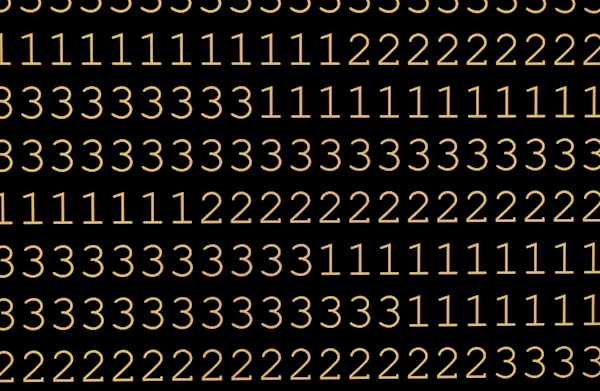Have you ever come across a sequence of numbers that seemed completely out of place—yet somehow captivating? One such sequence, 185.63.2253.200, has recently been making rounds online. At first glance, it appears to be an IP address, maybe a network path, or even some cryptic code tucked away in digital corners. But when you look closer, it feels like there’s something more behind those digits—something unknown and oddly magnetic.
What could it possibly mean? Is it a server? A breadcrumb from a bigger digital trail? Or is it a numerical clue pointing toward something deeper in the world of networks and cybersecurity?
In this article, we’ll explore the possible meanings, origins, and implications of 185.63.2253.200, pulling apart this seemingly random number to understand why it has captured the curiosity of so many.
What Is 185.63.2253.200, Really?
The sequence 185.63.2253.200 closely resembles an IPv4 address. IPv4 addresses are used by devices connected to the internet and usually follow a four-part format, each section ranging from 0 to 255. In that context, this address appears suspicious—because 2253 is not a valid number in standard IPv4 format.
This inconsistency is where the mystery begins. If it doesn’t fit the IP address criteria, then what is it?
Some believe it may be a deliberately mistyped or obfuscated IP to confuse automated systems. Others suggest it’s a placeholder or a disguised identifier meant to lead curious minds down a rabbit hole. One thing’s for sure: it breaks the rule of conventional IP formatting, sparking debate among IT enthusiasts and casual internet explorers alike.
The Allure of Strange Digital Codes
We live in a world where numbers govern the flow of information—from IP addresses to DNS records and port numbers. Usually, these combinations remain in the background, unseen and unnoticed. But every once in a while, a strange number like 185.63.2253.200 surfaces and gets people talking.
Part of the intrigue lies in how our minds naturally search for patterns and meanings. When we spot something that looks familiar but doesn’t quite fit, it activates curiosity. Could this number hide a message? Is it a part of an online game, like an ARG (Alternate Reality Game)? Or is it simply a mistake that took on a life of its own?
Whatever the answer, the buzz it’s created shows how even the most technical sequences can spark imagination and wonder.
Could It Be a Cloaked IP Address?
While it’s technically invalid in IPv4, some tech enthusiasts speculate that 185.63.2253.200 might be a cloaked or encrypted reference. It could be part of a system that uses custom encoding or a different base numbering system to obscure real addresses.
Some web services and cyber threat actors are known to obfuscate IP addresses to avoid detection by traditional firewalls and security systems. While it’s purely speculative in this case, it’s not out of the realm of possibility that this number is part of such an effort—real or fictional.
Typo or Intentional Easter Egg?
There’s another angle to consider: maybe 185.63.2253.200 is just a typo, or maybe not. Typos in IPs happen frequently, but when they happen on a large platform or in a piece of code, they can catch the eye of thousands of users and spark interest.
What’s especially intriguing is how some users online have started referring to this number in various forums and threads. Is it part of a digital easter egg or scavenger hunt that only a few understand? Is it tied to a puzzle, a hidden server, or a social experiment?
The lack of concrete information makes it ripe for interpretation—and endless theorizing.
Impact on Online Communities
Despite its uncertain origin, 185.63.2253.200 has started surfacing in conversation threads, meme forums, and even speculative Reddit posts. It’s turned into a kind of digital ghost story—one number, repeated enough times, becomes more than just a string of digits.
Communities love mysteries, especially when they involve cryptic tech. Some users have even tried to ping it, trace it, or convert it into different formats (binary, hexadecimal) to extract hidden meanings. Though nothing concrete has come up so far, the community engagement it has stirred is noteworthy.
It’s a reminder that the internet thrives on questions as much as answers.
Cybersecurity and Unknown IPs
While 185.63.2253.200 might seem harmless or purely fictional, it raises real questions about unknown or suspicious IP addresses. In cybersecurity, unknown addresses are always taken seriously. Whether it’s a typo, misconfiguration, or cloaked address, anything irregular can be a sign of:
Malware activity
Spoofed traffic
Unsecured devices
Rogue services
When such IPs appear in server logs or are linked to outbound traffic, network admins investigate them to ensure they aren’t part of a larger attack vector. So even if 185.63.2253.200 isn’t real in the IPv4 world, it echoes concerns that are all too real in cybersecurity.
The Psychology of Digital Curiosity
It’s not just the number that fascinates people—it’s what it represents. Human beings are naturally curious. When we stumble across something that defies logic or doesn’t follow the rules, we investigate.
That’s what 185.63.2253.200 has triggered: an urge to decode, to interpret, and to find meaning in digital chaos. It’s not the first time this has happened, and it certainly won’t be the last. The internet is full of stories where strange domain names, odd code snippets, or random sequences like this one have turned into full-blown urban legends.
Sometimes they lead to real discoveries. Other times, they simply entertain. But either way, they play a role in making the internet a more curious and engaging place.
How To Handle Suspicious Numbers Online
If you ever come across numbers like 185.63.2253.200, there are a few smart steps to take:
First, check if the number is in a valid format. IPv4 addresses, for example, won’t have numbers over 255. Second, avoid visiting unknown links or addresses unless you’re absolutely sure they’re safe. Third, report suspicious numbers to network administrators or online platforms if they seem harmful or malicious.
Being cautious doesn’t mean being afraid—it means being informed.
Why This Number May Never Be Solved
At the end of the day, 185.63.2253.200 may remain unsolved. It could be a code in a private game, a mistake amplified by virality, or something more complex hiding in plain sight. But its greatest value may not be in its solution—but in the conversations it has sparked.
Not every mystery on the internet is meant to be solved. Some exist simply to remind us how much we still don’t know about the digital world—and how engaging that uncertainty can be.
Conclusion
In a digital age filled with instant information, sometimes it’s the unsolved mysteries like 185.63.2253.200 that capture our attention the most. Though the number itself doesn’t seem to lead anywhere specific or hold a known function, its strange structure and mysterious presence online have created a ripple of curiosity, discussion, and analysis.
Whether it’s a typo, a coded message, or something far more imaginative, 185.63.2253.200 proves that even a string of numbers can have a story to tell—one shaped not just by its digits, but by the people who discover it.
FAQs About 185.63.2253.200
1. Is 185.63.2253.200 a real IP address?
No, it’s not valid because IP addresses can’t contain numbers over 255.
2. Could 185.63.2253.200 be part of a cyber attack?
Unlikely, but all unusual IPs should be investigated in a cybersecurity context.
3. Why is 185.63.2253.200 popular online?
Its strange format and mystery have sparked online curiosity and speculation.
4. Can I trace where 185.63.2253.200 leads?
No, because it doesn’t match any real network route or IP structure.
5. Is it safe to visit or use such addresses?
No, you should avoid interacting with unfamiliar or invalid IPs to stay secure.
6. Could 185.63.2253.200 be part of an online game or ARG?
Possibly—it has characteristics often used in mystery-based online games.











